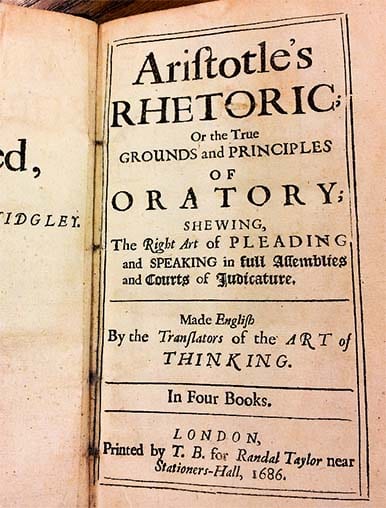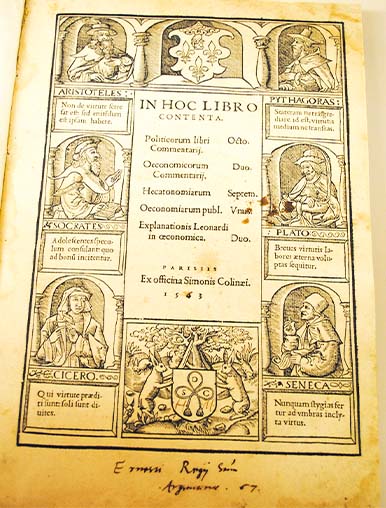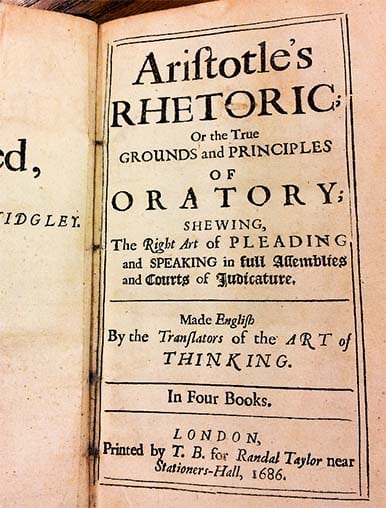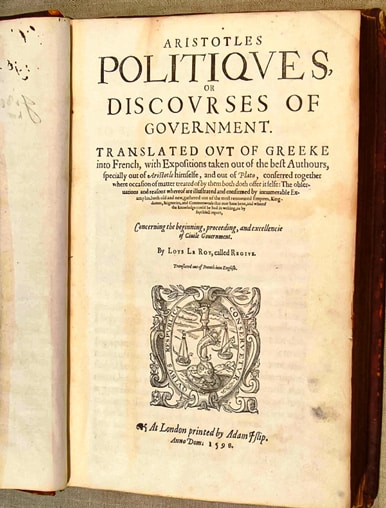REMNANT TRUST COLLECTION
Nichomachean Ethics
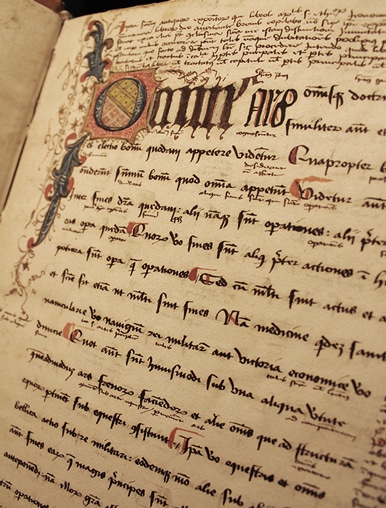
Category: Philosophy
By Aristotle
Published in 1488
Reference #0672
Nichomachean Ethics. Illuminated and Rubricated Manuscript on Paper in Latin. This volume is a translation of Leonardo Bruni transcribed by an unrecorded scribe, Guillaume-Henri, citizen of Embrun at Carpentras in France. The work is presumed to be dedicated to Aristotle’s father or illegitimate son, both called Nichomachus. Originally written in Greek and based on lectures Aristotle gave in Athens in the fourth century B.C., “Nichomachean Ethics” is Aristotle’s best-known work and helped lay the foundation for Aristotelian Ethics. Aristotle asserts that ultimate good for humans is eudiamonia, or happiness, which can be achieved through having a virtuous character, or ethos. There are four virtues that comprise a virtuous character: being of “great soul,” being just and fair, having practical wisdom, and being a truly good friend. “Ethics” was critical to the development of medieval and modern philosophy and was especially influential to Thomas Hobbes and Francis Bacon at the end of the Middle Ages.

